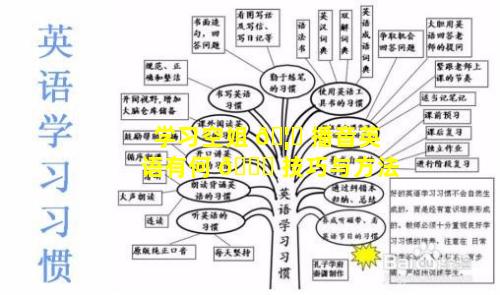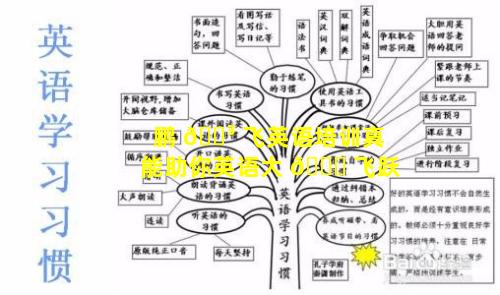学习 💐 英语能为音乐带来哪些方面帮 🐎 助
- 作者: 王政屿
- 来源: 投稿
- 2025-02-15
1、学习英语能为音乐 🌲 带来哪些方面帮助
对歌词 🕊 的理解和欣 🐠 赏 🪴
能够理解英语歌词含义,从而更深入地理解和欣 🌼 赏 🌹 音乐。
接触英语国家和文化的音 🌴 乐,拓宽 🐴 音乐品味。
发音和唱腔的提升英语 🦉 学习可以改善发音和咬字,帮助歌手更准确地唱出英语歌词 🐝 。
理解英语歌词的节奏和音调,提升 🌹 唱腔表现力。
创作 🐈 歌 🐯 曲的灵感和素材
英语掌握有助于获得创作歌曲的灵 🌵 感和 🐒 素材。
从英语歌曲中汲取创意,丰富歌词内容和 🐧 歌曲风格。
音乐交流和合作英语 🌴 作为国际语言,方便与英语国家的音乐家交流和合作。
参与国际音乐活动、合作项目,拓展音乐视野和人 🌼 脉。
音乐产业的拓展英语熟练度为音乐家在国际音乐产业中打开 🦁 大门。
与 🍀 外国唱片公司、音乐节和经纪人合作,扩大音乐事业影响力。
其他方面提升认知能力:学习英语可以 🐅 增强记忆力、注 🌾 意力和批判性思维。
提高文化素养:了 🕷 解英 🐺 语国家文化背景,丰富音乐背景知识。
增进国际理解:通过音乐架起语 🦆 言和文化的桥梁,促进不 🌳 同文化之间的交流。
2、音乐可以给人带来什 🐺 么好处英 ☘ 语
Music can provide numerous benefits for people, including:
Emotional regulation: Music can help people express and regulate their emotions. It can calm and soothe people when they are feeling stressed or anxious, and it can energize and motivate them when they are feeling down. Music can also help people feel connected to others and to their own emotions.
Cognitive benefits: Music can improve cognitive function, including memory, attention, and language skills. Listening to music can help people remember information more easily, and it can improve their ability to pay attention to tasks. Music can also help people with language impairments learn new words and improve their pronunciation.
Physical benefits: Music can have a positive impact on physical health as well. It can help reduce pain, improve sleep, and boost the immune system. Music can also be used to help people with physical disabilities improve their range of motion and coordination.
Social benefits: Music can bring people together and create a sense of community. It can be used to connect with others, build relationships, and share experiences. Music can also be used to promote social change and raise awareness of important issues.
Overall, music is a powerful tool that can have a positive impact on people's lives. It can provide emotional, cognitive, physical, and social benefits.

3、音乐给学生 🐅 带来的好处英语作 🌴 文
Music Enriches Students' Lives
Music plays a pivotal role in enhancing the lives of students, offering a myriad of cognitive, emotional, and social benefits.
Cognitive Development:
Engaging with music improves students' memory, attention, and problemsolving skills. Playing an instrument strengthens handeye coordination, while singing helps develop vocal cords and pitch control. Listening to music can stimulate the brain and promote creativity.
Emotional Wellbeing:
Music serves as an emotional outlet, allowing students to express and regulate their feelings. Listening to calming melodies can reduce stress and anxiety, while upbeat tunes can uplift their mood and boost their energy levels. Music also facilitates selfexpression and allows students to connect with their inner worlds.
Socialization:
Music brings people together. Playing in a band or choir fosters collaboration, communication, and teamwork. Attending concerts and music events promotes social interaction and a sense of community. Music can break down barriers and create a shared experience.
Academic Achievement:
Studies suggest that students who engage with music tend to perform better academically. Music education trains the brain to process information more efficiently, improving literacy, math, and science skills. It also enhances focus and concentration, which can boost overall academic performance.
Cultural Literacy:
Music exposes students to different cultures and perspectives. Listening to traditional music, classical works, and contemporary genres broadens their musical knowledge and fosters an appreciation for diversity. Music can bridge cultural divides and promote understanding between people from different backgrounds.
Lifelong Learning:
Music is a lifelong pursuit that can be enjoyed at any age. Learning a musical instrument or actively engaging with music develops transferable skills such as perseverance, selfdiscipline, and the ability to appreciate beauty. Music can become a source of joy and fulfillment throughout students' lives.
In conclusion, incorporating music into students' lives offers a wide range of benefits. It enhances cognitive abilities, promotes emotional wellbeing, fosters socialization, boosts academic achievement, increases cultural literacy, and fosters lifelong learning. By embracing the power of music, schools can help nurture wellrounded, creative, and successful individuals.
4、英语作文音 🌵 乐对我的重要 🌳 性
Music has always played an integral role in my life, accompanying me through countless experiences and serving as a constant source of inspiration and solace. Its transformative power has profoundly shaped me, enhancing my wellbeing and enriching my perspective on the world.
Emotional Expression and Catharsis
Music provides a potent outlet for expressing emotions in a nonverbal manner. Whether it is the soaring melodies of a symphony or the raw energy of a rock song, music transcends the limitations of language and allows me to convey my innermost feelings. When words fail me, music becomes a cathartic release, enabling me to process complex emotions and find solace in difficult times.
Cognitive Stimulation and Imagination
The intricate patterns and harmonies in music stimulate my cognitive abilities and ignite my imagination. By listening to diverse genres, I am exposed to a wide range of sounds, rhythms, and textures, which broaden my musical vocabulary and challenge my perceptions. Music also transports me to different time periods and cultures, fostering a sense of wonder and curiosity within me.
Personal Growth and Identity
Through the music I listen to, I have discovered and defined aspects of my own identity. The lyrics of songs and the stories behind them have resonated with me on a personal level, shaping my values and worldview. Music has helped me to understand my own motivations, aspirations, and vulnerabilities, contributing to my journey of selfdiscovery and personal growth.
Social Connection and Community
Music has the power to connect people from all walks of life. Through shared musical experiences, I have forged meaningful bonds with individuals who share my passion. Attending concerts, participating in choirs, and discussing music online have fostered a sense of community and belonging. Music has also enabled me to engage with different cultures, breaking down barriers and promoting understanding and empathy.
Conclusion
Music is more than just entertainment to me; it is an essential aspect of my being. Its transformative power has enriched my life in countless ways, providing emotional expression, cognitive stimulation, personal growth, and social connection. As I continue my journey, I am certain that music will remain a constant companion, guiding me, inspiring me, and making the world a more vibrant and meaningful place.




